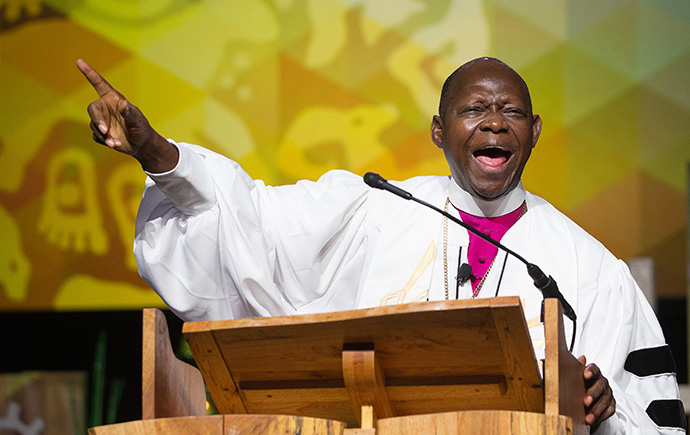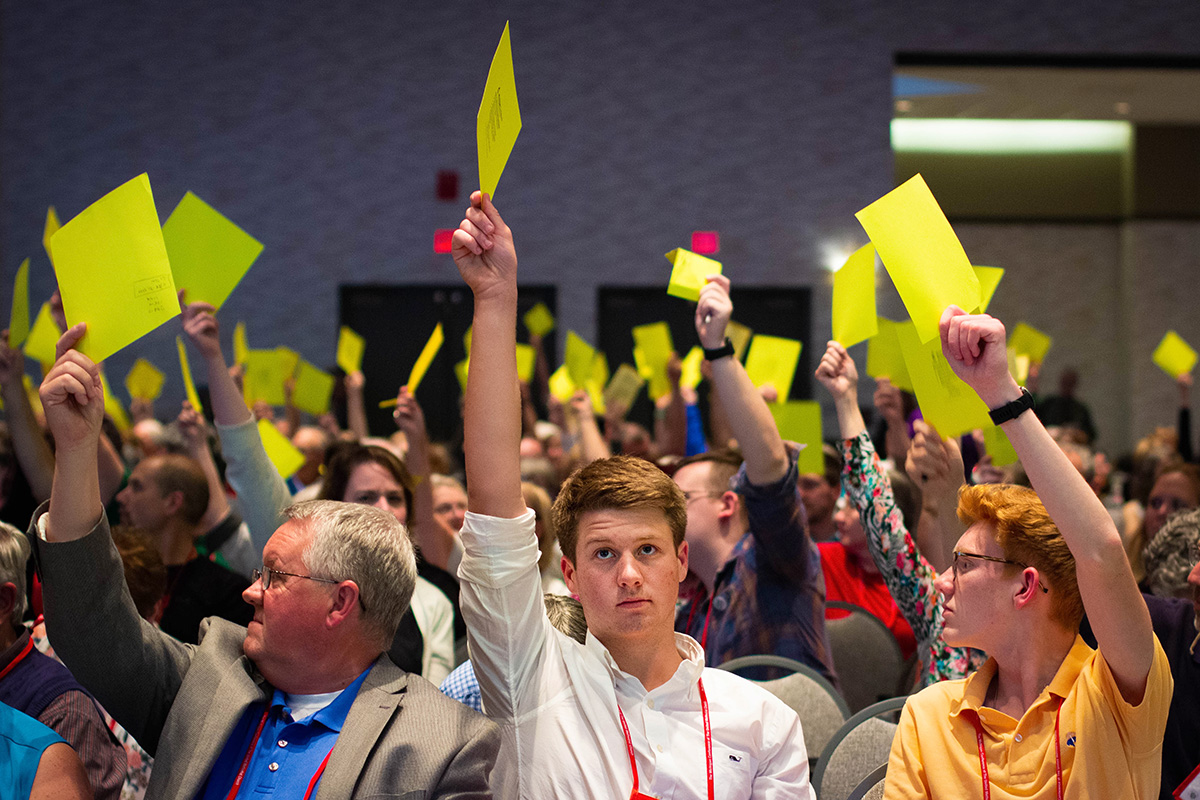At least two United Methodist annual conferences — Michigan and Sierra Leone — plan to vote next month on whether to forward to the 2020 General Conference legislation for the Protocol of Reconciliation & Grace Through Separation.
Though the protocol itself made international news with its announcement in early January, the legislation to enact it has just been released.
The proposal calls for letting traditionalist churches — those favoring current restrictions on same-sex weddings and ordination of LGBTQ persons as clergy —leave the denomination with their properties. They would also get $25 million in United Methodist funds to start their own church group.
Protocol legislation
Bishop David Bard issued a call for the Michigan Conference, which he leads, to meet in special session on March 7 to consider sending the protocol legislation to General Conference.
“We are wanting to help General Conference do its best work,” Bard said of the denomination’s lawmaking assembly. “Our action will help ensure that the (protocol) legislation is at General Conference.”
The Sierra Leone Conference will, in a March 4-8 regular annual conference gathering, take up the same question, Bishop John Yambasu confirmed.
Yambasu oversees that conference and began the talks that led to the protocol.
“As the one called by God to initiate the processes … I strongly believe that my annual conference must take a lead in affirming and owning the protocol,” he said by email.

New York Conference Bishop Thomas Bickerton serves on the 16-member protocol team with Yambasu and said the team is grateful to both the Michigan and Sierra Leone conferences.
Bickerton said one or two other annual conferences may have meetings in which they consider forwarding the protocol legislation.
The theologically diverse protocol team — including representatives from traditionalist, centrist and progressive caucus groups, as well as from the central conferences in Africa, Europe and the Philippines — met behind closed doors through the latter months of 2019.
Their goal was to find a way to end longstanding, intensifying conflict among United Methodists over how accepting to be of homosexuality.
Famed mediator Kenneth Feinberg led the discussions.
The resulting protocol listed key points of the agreement, and the team kept meeting to produce the actual legislation.
The 2020 General Conference is set for May 5-15 in Minneapolis, and the petition deadline passed months ago. But church law allows an exception for legislation coming from annual conference session held between 230 and 45 days before General Conference. (The General Conference Committee on Reference also has discretion to accept petitions past deadline.)
Other plans for the future of The United Methodist Church will be before General Conference, but some who were involved in drafting those also worked on the protocol and have pledged to support it. The protocol team has argued that the contentious 2019 special General Conference in St. Louis showed that internal divisions over same-sex weddings and ordination of LGBTQ clergy are so great as to require a separation.
Bard said he was approached by the protocol team about the possibility of the Michigan Conference holding a special session to consider forwarding the protocol legislation.
He checked with staff about the feasibility, and he sought out conference members with different perspectives on LGBTQ inclusion in the denomination, to see if they were supportive.
Bard heard back affirmatively.
He said the conference had some funds set aside for a possible special session and was able to get essentially free meeting space at United Methodist-affiliated Albion College in Albion, Michigan. By charging a small registration fee, the overall cost probably will not be a hardship to the conference, Bard said.
Subscribe to our
e-newsletter
“We are not the body to determine the final outcome of the protocol, we are the vehicle to get it to the table,” she said. “What a blessing it is for the Michigan Conference to lead in this way.”
Michigan Conference rules preclude amending legislation for General Conference. But substitutions could be offered.
Yambasu said he could not predict whether there would be an effort to amend the protocol legislation by the Sierra Leone Conference, which will meet in Koido City, in the eastern part of the West African country. But he thinks a strong vote to send it on to General Conference would indicate support for its passage.
He said the protocol “is by no means a perfect document.”
“But in the midst of the fractured-ness in which we now find ourselves as a denomination, and in a situation where all the plans so far developed by various groups in the U.S. have failed to resolve the impasse, the protocol is no doubt the best gift we can offer to the church at this time,” Yambasu said.
Hodges is a Dallas-based writer for United Methodist News. Vicki Brown of United Methodist News contributed, as did Mark Doyal, communications director for the Michigan Conference. Contact Hodges at 615-742-5470 or newsdesk@umcom.org. To read more United Methodist news, subscribe to the free Daily or Weekly Digests.
Like what you're reading? Support the ministry of UM News! Your support ensures the latest denominational news, dynamic stories and informative articles will continue to connect our global community. Make a tax-deductible donation at ResourceUMC.org/GiveUMCom.




